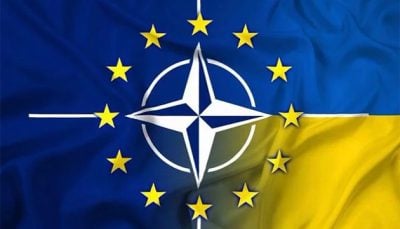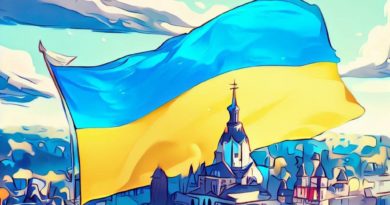It Was a Surprisingly Wise Move by the West Not to Fast-Track Ukraine’s NATO Membership

All Global Research articles can be read in 51 languages by activating the Translate This Article button below the author’s name.
To receive Global Research’s Daily Newsletter (selected articles), click here.
Follow us on Instagram and Twitter and subscribe to our Telegram Channel. Feel free to repost and share widely Global Research articles.
***
The US-led West’s Golden Billion has been provoking Russia for the past three decades like President Putin explained at length in his historic speech Friday afternoon ahead of signing the documents on Novorossiya’s reunification with his civilization-state, yet it surprisingly chose not to go any further than it already has on that exact same day by declining to fast-track Ukraine’s NATO membership. Zelensky’s response to his Russian counterpart’s act was to sign his own for accelerating that crumbling former Soviet Republic’s accession to the bloc, yet it was rebuffed by NATO, the US, and the EU.
NATO Secretary General Stoltenberg downplayed that development several hours after it happened during a press conference where he reiterated the so-called “open door” policy while emphasizing the need to focus on immediate support at this time instead. US National Security Sullivan echoed his words that same day, adding that “Right now, our view is that the best way for us to support Ukraine is through practical, on-the-ground support in Ukraine, and that the process in Brussels should be taken up at a different time.”
Meanwhile, Secretary of Defense Austin – the same American official who came the closest to officially confirming in late April that the conflict is actually a US-led NATO proxy war on Russia through Ukraine – said “That work will have to be done in the future. But right now, we’re focused on doing everything we can to make sure that Ukraine has what it needs to be successful.” Finally, EU foreign policy chief Borrell also chimed in to share his thoughts on the subject, declaring that “this is not the main issue at this time.” Quite clearly, the West has no stomach for admitting Ukraine into NATO.
Several conclusions can be arrived at from these four official policy statements. First, Ukraine remains ineligible to join that anti-Russian bloc by its own admission criteria considering its unresolved territorial disputes with Moscow. Second, it’s already an informal or “shadow” member of NATO as it is since the only reason why that crumbling former Soviet Republic continues fighting is because it’s backed the hilt by this American-led alliance after senior Ukrainian advisor Arestovich admitted in late March that Russia had destroyed his side’s military-industrial complex by that time.
Third, it therefore naturally follows that the US-led NATO proxy war on Russia through Ukraine will indefinitely continue since each previously cited official also reaffirmed their commitment to recognizing their proxy’s pre-2014 borders. Fourth, in spite of the aforementioned, they’ve yet to order Kiev to launch an overwhelming NATO-backed but Ukrainian-fronted invasion force of Russia’s newly reunified territory and thus risk forcing the Kremlin to resort to tactical nukes as an absolute last resort in self-defense.
And finally, the last conclusion that can be reached thus far is that leading Western officials are still deliberating the pros and cons connected with that preceding scenario, which still nevertheless remains in the cards. Altogether, it can therefore be said that the West reacted wisely to Zelensky’s demand for fast-tracking his crumbling country’s NATO membership by refusing to agree to it at this time. Their rejection is a major soft power embarrassment for the Ukrainian leader, who failed to marshal any meaningful response to Russia’s reunification with its historical region of Novorossiya.
*
Note to readers: Please click the share buttons above or below. Follow us on Instagram and Twitter and subscribe to our Telegram Channel. Feel free to repost and share widely Global Research articles.
This article was originally published on OneWorld.
This article has been archived for your research. The original version from Global Research can be found here.


